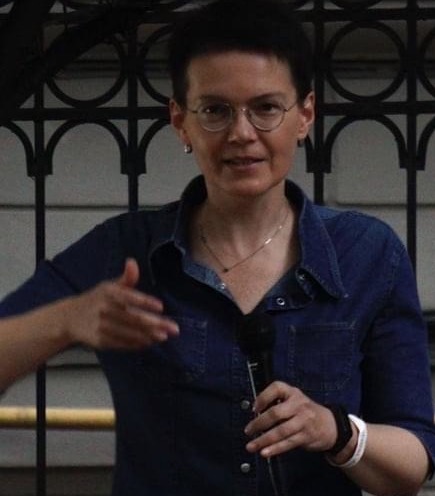
Oksana Pashko
Research Fellow
Contact
via dathe@europa-uni.de
Vita
Oksana Pashko is a philologist. She received her PhD in Comparative Literature from Shevchenko Institute of Literature of the National Academy of Sciences of Ukraine, thesis “Reception of Sergey Yesenin’s works in Ukraine of the 1920s”. Since 2015 she has been teaching at the National University of Kyiv-Mohyla Academy. Her main areas of research are: Ukrainian-Russian Literary Relations in the 20th century, Ukrainian and Russian Modernism, Sociology of Literature, Ukrainian Literary Criticism of the 1920s, Censorship and Literature, Literary Life in the Ukraine of the 1920s.
During her EUTIM research stay at the European University Viadrina she is working on the following topic:
The formation of sociology of literature in Ukrainian literary criticism of the 1920s: sociology of literary styles and readers’ perception
In 1926 Oleksandr Biletsky formulated the idea that it was necessary to “reorganize all our knowledge of literature in general into a sociology of literature.” Thus, he explained why it was important to establish a department of literary studies at the Kharkiv Institute of National Education. The plans for this new department included, in addition to formal analysis, the work on the “sociology of styles” and the “sociology of the reader.” However, the study of these aspects of the sociology of literature began much earlier in Ukraine. The problem of “sociology of styles” (the logic of change of artistic styles; the dialectics of the literary process; the artistic style and the everyday style of epochs; the socio-literary norms) was analyzed by Mykola Zerov in his work “New Ukrainian Literature” (1923). The problems of periodization of the literary process, on the other hand, were studied by Andriy Kovalevsky and Agapiy Shamrai. Already since 1922 Oleksandr Biletsky has been interested in the sociology of the reader. He wrote the article “On one of the next tasks of historical and literary science”. It was supplemented with new materials not only by Kharkiv literary critics such as A. Shamrai and I. Eisenshtock, but also by Kost’ Dovhan’ (Institute of Bibliology) and P. Philipovych (Ukrainian Academy of Sciences). The most important aspects of the research are: the sociology of literary evaluation; reader typology; class psychology and reader perception; means of reader influence; “popular” writers; poetic topoi.